Oftentimes, when people are thinking about eating healthy, they have a fitness goal in mind, like losing weight or building muscle. However, nutrition plays an integral role in how our bodies function in every way. More specifically, your gut health, which is determined by your diet, is clearly reflected by the appearance of your skin.
As a nutritionist, I have many clients share with me their health concerns beyond the scale, and conditions like acne and dryness are common complaints. If you’re looking to optimize your skin, keep reading to discover the 14 best foods for healthy skin.
How to get clear skin: Best foods for healthy skin to eat now

Fortunately, there are plenty of foods for healthy skin that protect it from sun damage, wrinkles, inflammatory conditions, acne, and fine lines. You can nourish your skin cells, protect your gut microbiome, and combat cellular damage. Keep scrolling for the best foods to eat for healthy, vibrant, glowing, clear skin.
Kiwi and citrus fruits
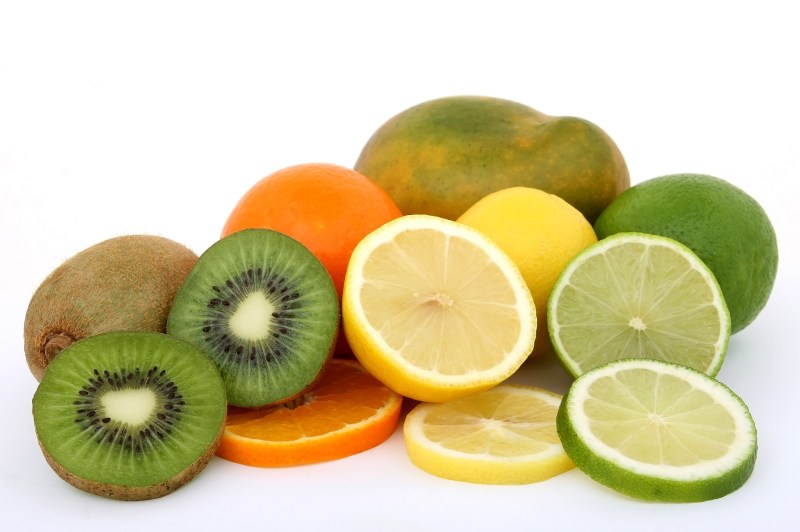
Vitamin C is one of the key antioxidants shown to inhibit the free radicals from UV sun exposure that ages our skin by damaging the collagen and elastin fibers that normally give our skin a healthy, firm, supple structure. As these structural components are damaged by free radicals, our skin becomes prone to wrinkles, sagging, and fine lines. Fruits like kiwi, citrus, and blackberries provide a potent dose of this powerful antioxidant.
Berries

Packed with antioxidants and vitamins, berries help fight free radicals and inflammation, which can contribute to wrinkles and other signs of aging. Strawberries, blueberries, raspberries, and blackberries are all excellent choices.
Red bell peppers

Red bell peppers are a great source of vitamin C and beta-carotene, which is converted to vitamin A in the body. Vitamin A is essential for healthy skin cell growth and repair.
Almonds, walnuts, and other nuts
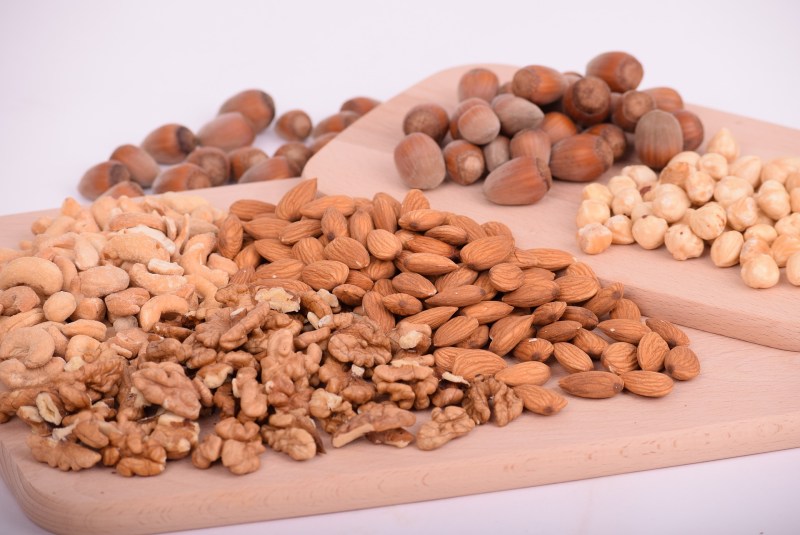
Almonds, walnuts, and other nuts, as well as wheat germ, are great sources of vitamin E, a fat-soluble vitamin. Like vitamin C, vitamin E is an antioxidant that combats free-radical damage from the sun and helps provide an anti-angling benefit to your skin. It’s also hydrating and prevents excessive dryness. Vitamin E also helps encourage skin growth.
Brazil nuts are one of the best dietary sources of selenium, a key immuno-supportive mineral that can protect against skin cancer, age spots, and sun damage. The fats in nuts nourish the skin and keep the cell membranes supple and supportive.
Soybeans and tofu

Tofu and soybeans are good sources of plant-based protein and isoflavones, which may help protect the skin from sun damage.
Tomatoes

Tomatoes are rich in lycopene, a carotenoid that protects against sun damage and sunburn. They also contain selenium and antioxidants. Tomatoes also contain lots of water, which hydrates your skin cells and prevents excessive sagging and dryness.
Salmon, sardines, and fatty fish
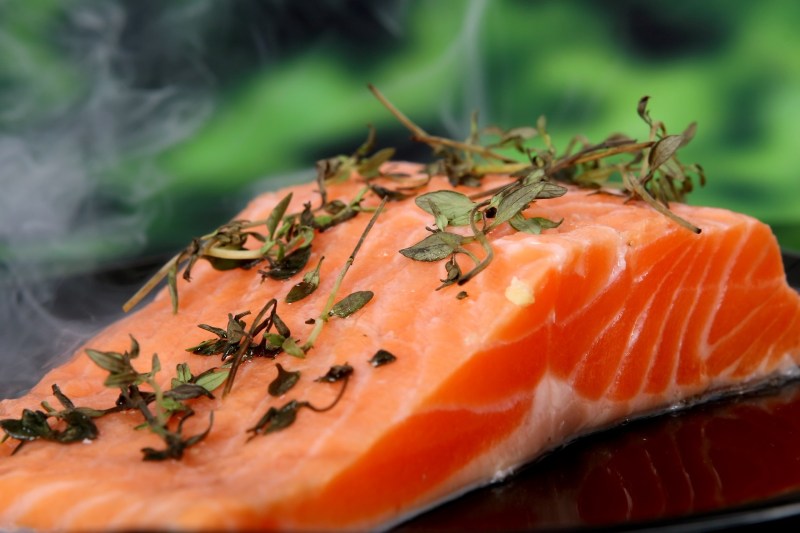
Salmon, sardines, and other fatty fish provide omega-3 fatty acids, which have potent anti-inflammatory effects on the body. They reduce redness and irritation and provide essential fats for cell membranes. Evidence suggests these essential fatty acids also encourage collagen production, helping maintain skin firmness and prevent wrinkles. In fact, a study confirms this by stating they “increased collagen synthesis and the overall percentage of collagen produced.”
Omega fatty acids also hydrate and nourish the skin, which helps it remain supple. There is evidence to suggest these oils can be effective against psoriasis and eczema. Fatty fish is also a source of CoenzymeQ10, which is a powerful enzyme that combats cellular damage and promotes healing and cell turnover.
Whole eggs

Whole eggs are nutrition powerhouses because their protein offers all essential amino acids, and the yolks are rich in vitamins and minerals, many of which are in higher concentrations than most other food sources. Eggs offer many nutrients important for skin health. For example, the yolks are a great source of biotin, which has anti-aging properties for the skin because it reduces inflammation and prevents peeling and itching.
They also have vitamin D, which is especially important for our skin as we age because it acts as a precursor for the hormones that help repair and regenerate cells. Yolks also contain the mineral selenium, which combats sun damage by increasing elastin production to keep your skin supple and flexible.
They are also one of the best natural sources of retinol, which is a compound found in many anti-aging skincare serums that is vital for the regeneration of skin cells, prevents hyperpigmentation and collagen breakdown, and helps keep your skin tone even and your skin firm. Protein in eggs also provides the amino acid building blocks necessary to produce the structural collagen in the skin.
Unsweetened yogurt and kefir

Yogurt, kefir, and other fermented foods like sauerkraut, kimchi, tempeh, and kombucha contain probiotics, which are live microorganisms that support your healthy gut microbiome. Keeping these helpful bacteria and fungi healthy will maintain the integrity of your gut lining, inhibit pathogenic invasion, and keep inflammation at bay. This will keep your skin clear and prevent inflammatory dermatological conditions. Milk and kefir also contain vitamin D, which can provide protection against wrinkles.
Chia seeds, flaxseeds, pumpkin seeds, and sunflower seeds
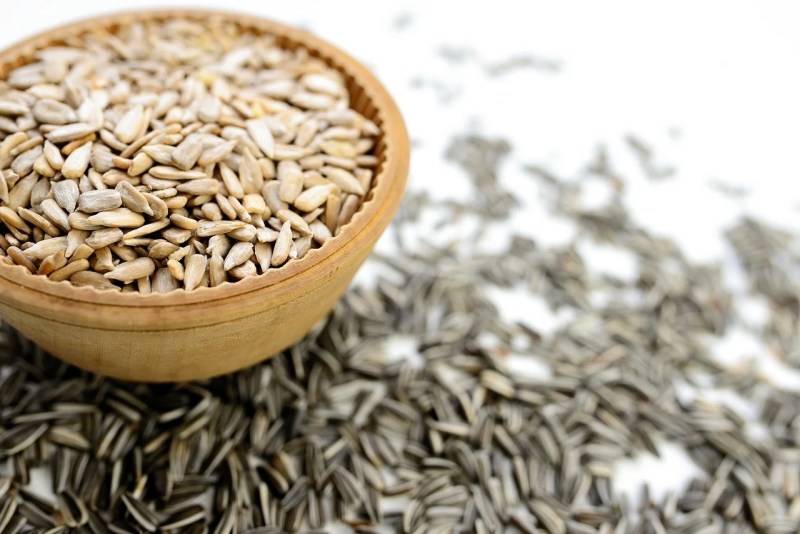
Seeds provide a bounty of essential nutrients, many of which support the health and appearance of your skin. For example, chia seeds and flaxseeds contain omega-3 fatty acids, making them a great option for vegans or vegetarians who don’t consume fatty fish.
Seeds help keep your skin supple, prevent inflammation, and encourage cell turnover. Pumpkin seeds are a good source of zinc, a mineral important in skin repair and regeneration. It is also critical in sebaceous (oil) gland regulation, helping avoid clogged pores and breakouts.
Carrots
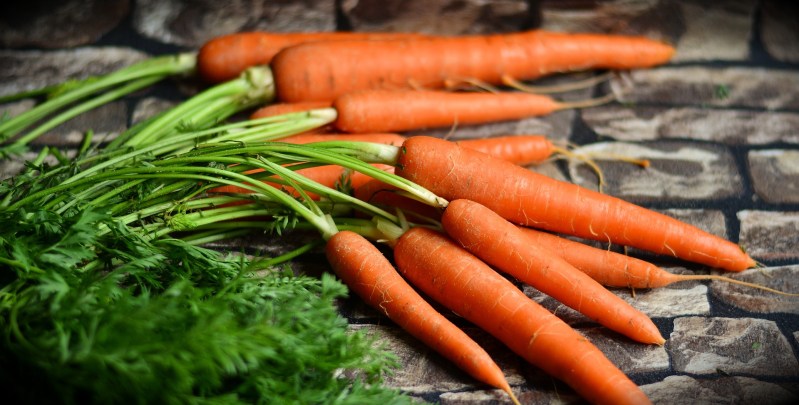
Carrots (and sweet potatoes and pumpkins) are packed with beta carotene and vitamin A, a fat-soluble nutrient vital for skin tissue regeneration. It helps prevent the skin from becoming overly dry, rough, and flakey, and clinical studies show it has a protective effect against UV damage. It can also help control oil production and may help prevent acne breakouts.
Green tea
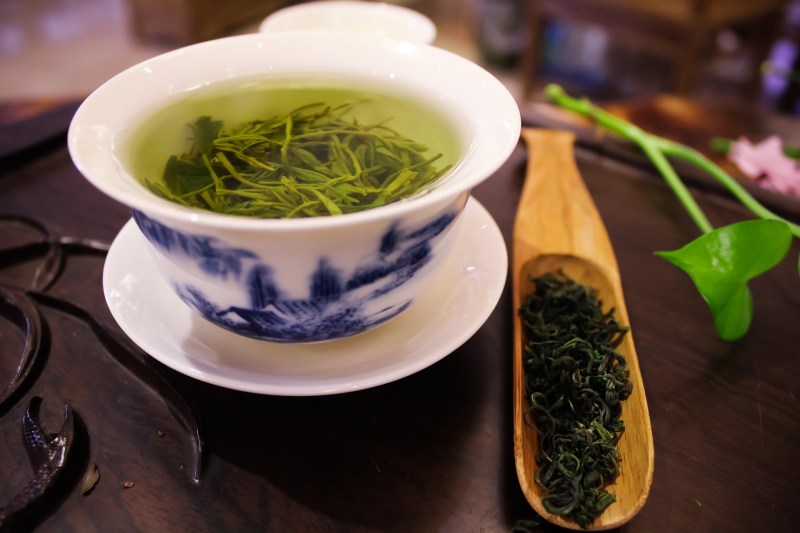
Green tea contains polyphenols, which have been shown to have anti-carcinogenic effects and reduce inflammation. Research indicates these powerful compounds can also combat acne. Green tea also contains vitamin K, which prevents blood coagulation and can reduce the appearance of dark circles under your eyes.
Dark, leafy greens
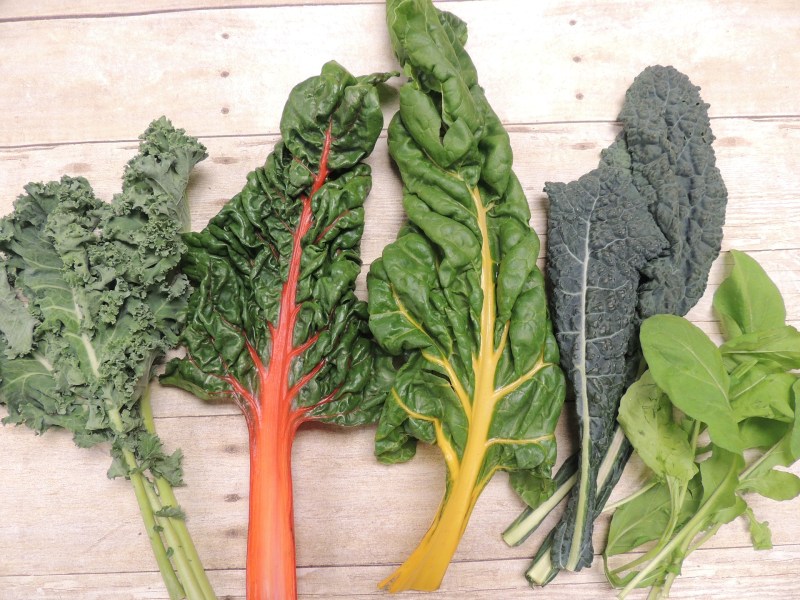
Green leafy vegetables make almost every list of the healthiest foods, so it should come as no surprise that they earn a spot on a list of beneficial foods for your skin. They are packed with vitamins, minerals, and fiber, all of which boost your overall health, and they contain prebiotics, which feed the beneficial bacteria in your body residing in your microbiome.
Dark leafy greens are a good source of B vitamins like niacin, which has anti-inflammatory and moisturizing effects on the skin. They also have lutein, which is necessary for normal skin turnover. Spinach contains alpha-lipoic acid, a powerful antioxidant that acts as a free radical scavenger. It’s added to many skincare products because it improves the integrity of the cell membranes, smooths the skin, inhibits hyperpigmentation and dark spots, and combats sun damage and skin aging.
Turmeric and ginger
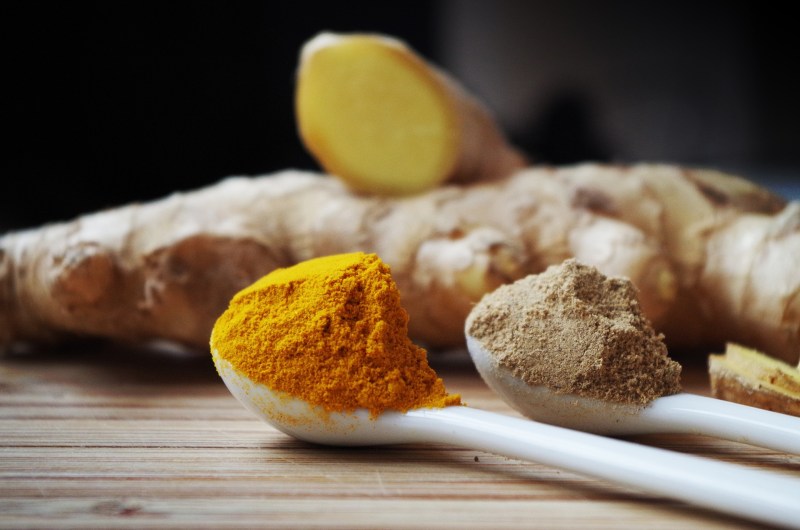
Turmeric and ginger are powerful anti-inflammatories, and they can help protect against oxidative damage to the skin. They are thought to provide anti-aging benefits and to even your complexion.
Example day of eating for optimal skin health

- Breakfast: 2 scrambled eggs, 2 ounces of smoked salmon, 1.2 cups of sauteed spinach, 1/2 avocado, 1 slice of sourdough toast, and 1 teaspoon of butter
- Lunch: 4 ounces of grilled chicken, 1/2 cup of quinoa, 1/2 cup of roasted sweet potatoes, 1 cup of steamed broccoli, and 1 tablespoon of olive oil
- Snack: 1/2 cup of Greek yogurt, 1/4 cup of blueberries, 1 teaspoon of chia seeds, 1 tablespoon of walnuts, and 1 teaspoon of raw honey
- Dinner: 5 ounces of baked salmon, 1 cup of roasted Brussels sprouts, 1/2 cup of mashed cauliflower, and 1 tablespoon of extra virgin olive oil




